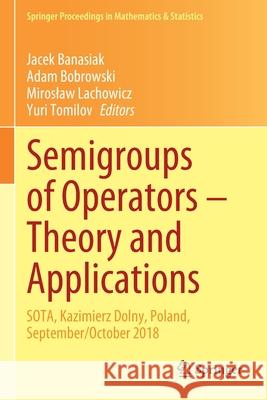Semigroups of Operators - Theory and Applications: Sota, Kazimierz Dolny, Poland, September/October 2018 » książka
topmenu
Semigroups of Operators - Theory and Applications: Sota, Kazimierz Dolny, Poland, September/October 2018
ISBN-13: 9783030460815 / Angielski / Miękka / 2021 / 446 str.
Semigroups of Operators - Theory and Applications: Sota, Kazimierz Dolny, Poland, September/October 2018
ISBN-13: 9783030460815 / Angielski / Miękka / 2021 / 446 str.
cena 684,33
(netto: 651,74 VAT: 5%)
Najniższa cena z 30 dni: 655,41
(netto: 651,74 VAT: 5%)
Najniższa cena z 30 dni: 655,41
Termin realizacji zamówienia:
ok. 16-18 dni roboczych.
ok. 16-18 dni roboczych.
Darmowa dostawa!
Kategorie:
Kategorie BISAC:
Wydawca:
Springer
Seria wydawnicza:
Język:
Angielski
ISBN-13:
9783030460815
Rok wydania:
2021
Wydanie:
2020
Numer serii:
000447439
Ilość stron:
446
Waga:
0.63 kg
Wymiary:
23.39 x 15.6 x 2.36
Oprawa:
Miękka
Wolumenów:
01
Dodatkowe informacje:
Wydanie ilustrowane











